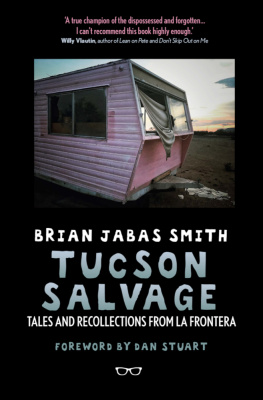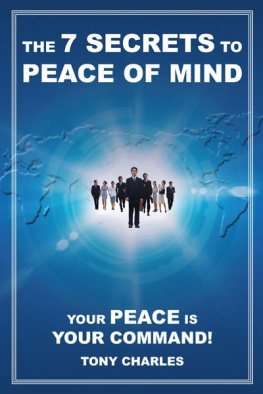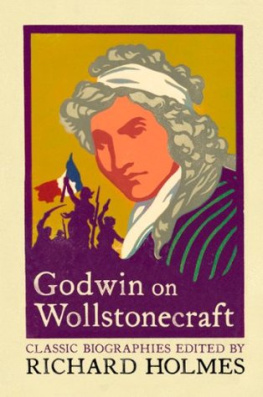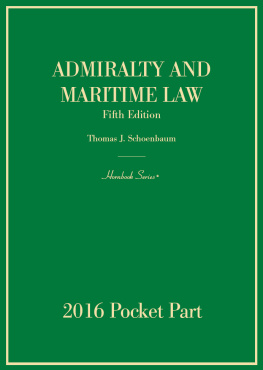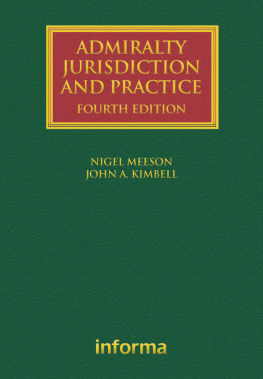Also by Tony Booth:
Coxs Navy

First published in Great Britain in 2007 by
PEN & SWORD MARITIME
an imprint of
Pen & Sword Books Ltd
47 Church Street Barnsley, South Yorkshire, S70 2AS
Copyright Tony Booth, 2007
ISBN 978-1-84415-565-1
eISBN 9781781596272
The right of Tony Booth to be identified as the author of this work has been asserted by him in accordance with the Copyright, Designs and Patents Act 1988.
A CIP catalogue record for this book is available from the British Library
All rights reserved. No part of this book may be reproduced or transmitted in any form or by any means, electronic or mechanical including photocopying, recording or by any information storage and retrieval system, without permission from the Publisher in writing.
Typeset in 11/13 Sabon by Concept, Huddersfield, West Yorkshire Printed and bound in the England by Biddles Ltd
Pen & Sword Books Ltd incorporates the Imprints of
Pen & Sword Aviation, Pen & Sword Maritime, Pen & Sword Military,
Wharncliffe Local History, Pen & Sword Select,
Pen & Sword Military Classics, Leo Cooper
For a complete list of Pen & Sword titles please contact
PEN & SWORD BOOKS LIMITED
47 Church Street, Barnsley, South Yorkshire, S70 2AS, England
E-mail: enquiries@pen-and-sword.co.uk
Website: www.pen-and-sword.co.uk
In Memory of Michael Cobbold
21 January 193311 December 2000
Salvage and Mooring Officer
Who always believed this story should be told
The work of the Salvage Organization has been beyond praise, and its value to the Allied cause, in terms of shipping and cargo saved, is incalculable.
Admiral Harold Martin Borrough ,
Naval Commander-in-Chief ,
Allied Expeditionary Force, 1945
the work of Naval salvage, a vital job whose achievements can all too easily be forgotten.
Louis, Earl Mountbatten of Burma, 1965
Contents
Foreword
At a time in which the relevance of the maritime environment and its central role to the prosperity and security of the UK is perhaps less well understood than at any time in our recent history, I am delighted to have the opportunity to introduce this book. Benefiting from meticulous research, Tony Booth has distinguished the incredibly important role of Admiralty Salvage from the more romantic view of salvage perpetuated along the lines of films such as Whisky Galore! and the recent scenes at Branscombe Bay.
At its core remain the relentless and unforgiving nature of the sea and of the selfless, heroic and pioneering actions of men who first worked in this often harsh environment, particularly during the two world wars of the last century. However, the work of the Admiralty Salvage Section goes beyond these two conflicts through Suez, the Falklands and the 2nd Gulf War, often in highly dangerous circumstances and conditions, and invariably at the cutting edge of innovation and technology. As the book unfolds, the reader will soon discover that salvage comprises many different aspects, including recovery of cargo, food, ammunition, gold bullion and military equipment to name but a few.
What is absolutely clear is the critical role that the Section played during the world wars, and its part in keeping open the flow of vital supplies that separated this country from starvation and military impotence. It is not only a fitting testament to the officers and men involved, but a reminder of the importance of the sea to us all, and those who ply their trade upon it.
Admiral Sir Jonathon Band KCB, ADC
First Sea Lord and Chief of the Naval Staff
February 2007
Acknowledgements
I would like to thank the following organizations and individuals for images, quotes or interview material to ensure that this book could be completed. For his information and recollections as a Rescue Tug crew member during the Second World War, Deanne Wynne. Deanne served aboard Rescue Tugs during the North Atlantic convoys as well as in the D-Day operation, and is today the president of the Deep Sea Rescue Tug Association, whose many current members were involved in Operation Overlord and the towing of Phoenix units across to the Normandy beaches. To Birlinn, publishers in Scotland, for permission to quote from The Great War at Sea by Richard Hugh. Details from the book Up She Rises by Frank Lipscombe and John Davies, published by Hutchinson, are reprinted here by permission of The Random House Group Limited. Extracts from The Path to Power by Lady Margaret Thatcher are reprinted by permission of HarperCollins Publishers Ltd Margaret Thatcher, 1995. The Orcadian newspaper for the use of some statistics regarding salvaged ships that they published in 1941. Lawrence H. Officer, Purchasing Power of British Pounds from 1264 to 2005, www.measuringworth.com , 2006, for accurate calculations of currency value based on the Retail Price Index. The National World War II Museum, for use of the D-Day oral history of Private G.W. Levers, from the Peter S. Kalikow Oral History Collection at the Eisenhower Center for American Studies, University of New Orleans.
Photographic archivist David Mackie at the Orkney Library & Archive for permission to use an image of the salvage vessel Bertha . ITN Archive/Stills for images of Suez and Commander Polland while salvaging the de Havilland Comet Yoke Peter . The National Oceanic and Atmospheric Administration/Department of Commerce (NOAA), for their image of the abandoned SS Coulmore in a raging sea. The Imperial War Museum for images H 393000, B 5225 and A 24130, covering D-Day. The National Archives, Kew, to quote from their files and the use of images covering the Laurentic salvage and the loss of the de Havilland Comet Yoke Peter. Jennifer Cochrane for her editorial advice. Mr Barry Carroll for his much-appreciated (more than he realizes) help in London. My wife, Virginie, for tolerating my long and often late hours at the keyboard. Jack and Hugo for being two little boys. Jane Westcott for never once complaining to anyone about giving me that one thing all writers crave: time. Susie Deflassieux, a mother-in-law in a million who ensured that I could make much-needed research trips. Please note, despite prolonged and exhaustive enquiries, tracking down certain copyright holders has proved impossible.
And finally I cannot thank enough the United Kingdoms current Chief Salvage and Mooring Officer, Morgyn Davies OBE. During one of Britains worst heatwaves, in July 2006, Morgyn allowed me free access to the salvage files at the MoD establishment in Foxhill, Bath, in the middle of a particularly busy working schedule. That same week Israel was bombing southern Beirut and the Royal Navy was tasked with evacuating British subjects; a helicopter carrying the Albanian Deputy Prime Minister had crashed off Corfu killing all on board; three aging Russian nuclear submarines were about to be stabilized and moved to a safe location for breaking up. All these events were making him very busy indeed, either to actually deploy a salvage force or plan for such an eventuality. Still, whenever I had a question, needed specific files, images or answers to what must have sometimes seemed trivial questions, Morgyn always took the time to give me what I needed. Salvage is a specialized business, the mechanics of which are understood by very few, not least by a writer trying to fully comprehend the subjects largely forgotten impact on modern history. Morgyns reading of the final manuscript, and valid comments, has made this a much better book than I could possibly have hoped for.




